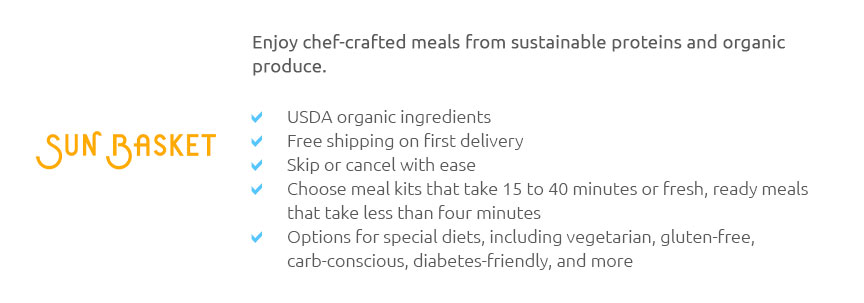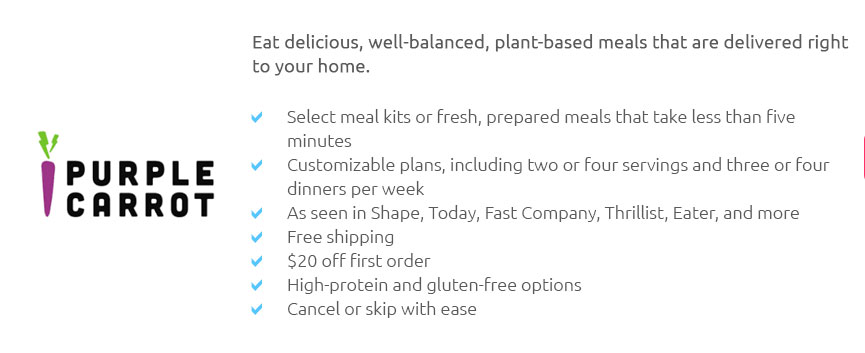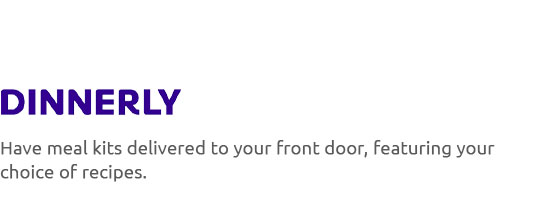 |
 |
 |
|---|
 |
|---|
 |
||||||
|---|---|---|---|---|---|---|
|
||||||
 |
 |
|||||
 |
 |
|||||
 |
 |
|||||
 |
 |
|||||
 |
 |
|||||
 |
 |
|---|
Exploring the World of Healthy Meal Delivery PlansIn today's fast-paced society, where time is often considered a luxury, the quest for maintaining a healthy diet amidst demanding schedules is a significant challenge. This is where healthy meal delivery plans step in, offering a convenient solution for individuals striving to balance nutrition with their busy lives. As more people become health-conscious, these services have gained popularity, providing a variety of options tailored to meet diverse dietary needs. The rise of meal delivery services can be attributed to the increasing awareness about the benefits of a balanced diet and the growing desire to lead a healthier lifestyle without compromising on taste or convenience. These plans offer an assortment of meals that cater to specific dietary requirements such as vegan, vegetarian, keto, paleo, and gluten-free among others. This wide range ensures that there is something for everyone, no matter their dietary preferences or restrictions. One of the primary advantages of opting for a meal delivery plan is the convenience it offers. With meals being delivered straight to your doorstep, the need to plan, shop, and cook is significantly reduced, allowing individuals to focus on other important aspects of their lives. Additionally, these plans often come with pre-portioned ingredients, which not only saves time but also helps in managing portion sizes, thereby aiding in weight management and reducing food waste. Another noteworthy benefit is the quality of ingredients used in these meal plans. Many services pride themselves on using fresh, organic, and locally sourced ingredients, ensuring that the meals are not only healthy but also support sustainable practices. This focus on quality is a significant draw for consumers who are keen on making environmentally conscious choices. However, while the benefits are clear, it's essential to consider some potential drawbacks associated with healthy meal delivery plans. One of the most commonly cited concerns is the cost. These services can be more expensive than traditional grocery shopping and home cooking, which may not be feasible for everyone. Additionally, despite the variety, some users may find the menu options limited over time, particularly if they have specific taste preferences or dietary restrictions that are not fully catered to by the service. Moreover, for those who enjoy the process of cooking, meal delivery plans might take away the joy of culinary experimentation. The pre-prepared nature of these meals means there's less opportunity to be creative in the kitchen, which could be a downside for food enthusiasts who relish the art of cooking. Ultimately, when considering a healthy meal delivery plan, it's crucial to weigh these pros and cons carefully. Researching different providers, understanding the variety of options available, and assessing personal dietary needs and budget can help in making an informed decision. Whether you prioritize convenience, quality, or cost, there's likely a meal delivery service that aligns with your values and lifestyle. In conclusion, healthy meal delivery plans present a viable solution for those looking to maintain a nutritious diet amidst the chaos of modern life. By offering convenience and quality, they cater to a growing demographic that values health and time. Yet, like any service, they come with their own set of challenges, making it imperative for potential users to carefully consider their personal needs and expectations before committing to a plan. https://sunbasket.com/?srsltid=AfmBOoqrk2Xm5IBgwuX0tls2kQH8fxJKllE37GQVQoUmIjyP0nhmGtJ4
Sunbasket offers healthy meals delivered, from heat-and-eat meals to cooking kits, for all tastes and lifestyles. https://www.bonappetit.com/story/best-healthy-meal-kits-reviewed?srsltid=AfmBOopQge6cyo47faxXKwputeMtt8_Ywy7_GWr_tClvUSvqZQPk9CoT
Daily Harvest is kind of the OG healthy meal delivery service. They started out as a DTC smoothie kit brand, and that's still where they excel. https://www.bonappetit.com/story/best-meal-delivery-services?srsltid=AfmBOoqR3NiLCosOP2TVv7Yr-O0Zun5SLHiF22OKUho7GZ_LE8-iuWOU
Green Chef is owned by another popular meal kit company, Hello Fresh, but offers (mostly) organic, seasonal produce, with an emphasis on lean ( ...
|
|---|


